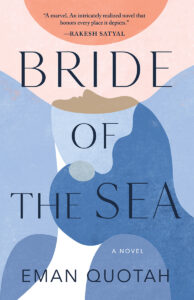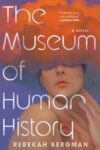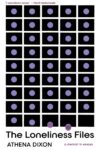
[Tin House; 2021]
In attempting to capture an entire life — be it through visual art, writing, or film — there are always things lost, conversations missed, impulses and answers perpetually unresolved. Eman Quotah’s debut novel Bride of the Sea (Tin House, 2021) tells a tale of liminality and family, characters continually trying to piece themselves together among persistent loss. This is the condition of being a migrant, of being in-between, told in a stunning story which spans nearly fifty years. Beyond the impressiveness of the book’s scope, it is worth noting that Quotah’s writing is undeniably beautiful. As someone who primarily reads and writes poetry, immersing myself in a piece of prose can pose a challenge, but such was not the case with Bride of the Sea. It’s the kind of book where you can viscerally sense the thought put into each sentence — mentions of rose water, eyes like date pits, Saudi and American landscapes, and the weight of emotion across generations.
The book begins during a 1970s winter in Cleveland, Ohio. Muneer and Saeedah, newly married and expecting their first child, have arrived in America from Saudi Arabia. But the novel quickly moves past this portrait of a would-be American dream — the pair is unhappy, there is a palpable tension. Breaking sacred notions of tradition, it is clear their divorce is imminent, and before long, the pivotal moment of the story occurs: they split, Muneer returns to Saudi Arabia to finalize the papers, and Saeedah, now with newborn Hanadi, decides she will run away with the baby, leaving no trace behind in attempts to construct a new identity, a new life.
The rest of the novel traces the ripples of such a decision. Quotah’s chapters, although always in third person, oscillate points of view, eventually including Hanadi’s narrative. Muneer is heartbroken and spends years of his life trying to locate his daughter. Saeedah, believing she had “tasted too much freedom to go back to Jidda, or to share her daughter with Muneer again” builds a nomadic and undercover life. Hanadi, who eventually takes on the westernized name of Hannah, grows up believing that her father is dead. As details of the truth begin to pepper her reality, Hannah becomes a central figure of the novel, eventually traveling to Saudi Arabia, full of anger at her mother’s deception and curiosity about the world she never knew. “Hannah can’t tell these people apart,” Quotah writes, “and yet they seem part of her. They’ve missed her, and she has no idea who they are.”
One of the novel’s particular strengths is the weaving of such an intimately personal family tale with an ever-present political backdrop. Happening throughout the novel are events like the Gulf War and 9/11, with remarks and asides from characters helping to inform readers of the lived reality of such moments. In the latter parts of the novel, Operation Desert Storm is launched, and the Saudi children are sent home from school, a situation described “like being home because of a blizzard — except it’s because of a war, and no one knows exactly when it will end.” These particularities are especially important when considering the societal portrait of Saudi Arabia, and the Arab world at large. Even Hannah encounters these limitations: “She’d tried to find out about where she was going before she left Ohio. But the books about Saudi Arabia in the library were all about oil and history.” Quotah’s novel fills in some of these blanks, putting real people and real moments into a geographic narrative that still often remains one-dimensional.
Also ever-present is a commentary on gender and womanhood, on what it means to be female in America versus in Saudi Arabia. To the Saudi family members, the United States transforms from a land of opportunity to a tainted space; after all, “it’s America’s fault a mother and daughter can disappear. Why would a Jidda girl do such a thing?” This is the dichotomy that drives Saeedah to make the decisions she does, but it is also one that haunts Hannah. When she travels to see her father, “she feels her femaleness constantly…in a way she occasionally does in America.” She is told not to talk too loud and to cover her hair. Towards the end of the novel, the news arrives that Saudi women will soon be able to drive. Despite how “behind” Saudi culture feels in comparison to America, Hannah “feels trapped by…the Americanness of her existence.” She wants to understand her history, and who she truly is, even if it’s complicated.
The impossibility of such resolution is perhaps the novel’s greatest takeaway. I had thought that the novel would build to the moment where Hannah finally finds her father, but this happens in the middle of the book, with so much that follows after. Bride of the Sea is not a story about a single meeting — it’s a story about the process of losing and gaining and re-losing and re-gaining again and again. Even when Muneer finally locates his daughter, Quotah writes that “he hasn’t found Hanadi. He is finding her.” The rupture is always present, even as it’s being repaired.
And despite his absence in Hannah’s life for nearly twenty years, Muneer is a character that the reader eventually comes to know quite well — coming to understand the way he loves his family, the worry that plagues his mind, the bravery and dedication to journalism that ultimately gets him jailed. And one of the most central aspects of his personhood is his dependence on faith; among the unspeakable conditions of his life, time and time again, “Muneer chooses prayer as his coping mechanism.” As the daughter of an Arab immigrant father, for whom faith is a major part of life, Muneer’s overwhelming belief in God felt familiar. Unsurprisingly, this is not an anomaly, it’s the way he was raised. At one point Muneer’s mother tells him, “I pray for you every day. I’ve prayed for you at the Haram in Makkah, asked God to guide you. I’ve prayed for you at the Prophet’s Mosque in al-Madinah. I’ve prayed for your daughter, and I’ve prayed for her mother. What more can we do?” If things were meant to happen, God would make them happen. And if pain pervaded, then it was part of God’s plan. Almost comically familiar, too, is the way that Hannah eventually comes to rub up against this religiosity. Her time in Saudi Arabia, around Islam and the call to prayer, around modesty and constant mentions of The Prophet, are all new to her. During a scene in the latter half of the book, her father is telling her the tale of Joseph: “His brothers threw him down a well and pretended he’d been eaten by wolves. His father went blind with grief.” Replying to this impactful fable, Hannah — rendered as a perfect mix of angst and earnestness — simply replies, “That sucks.”
Saeedah, in contrast, seems to evade this gradual knowing. As the book progresses, the reader sees less and less of her. Her life, once revolving around Hannah and their quest to be unseen, becomes a journey towards Americanness. She finds a new husband and converts to Christianity, never returning to her homeland again. Despite this, Hannah feels traces of her mother when she goes to Jidda. She realizes:
“This place — this bride of the Red Sea, as her father calls the city — is the origin of her mother’s phonemes. The blue sky like a vat of dye, the air like steam in a bathroom, the promise of sea to the west and carpets of sand to the east, somewhere over there past the city limits. These things gave birth to her mother’s p’s that are not quite p’s, her v’s that bear passing resemblance to f’s, her insistence on opening lights rather than turning them on.”
I feel this when I travel to my own parents’ countries of origin. I think about what is lost in translation, what has been lost across time and geography. I wonder if home is a thing assigned by birth or are roots malleable — home a space to be constructed, erased, and molded to fit the present conditions? I don’t know if we can ever fully untether ourselves from our origins, but I know many have tried. Parents, thinking they are doing the best for their children, conditioned to associate love and sacrifice, even if the expression of such acts is imperfect. Grief, assimilation, trauma, anxiety, and fear, I have come to learn, are part of the migrant experience. The events of Bride of the Sea, even the decisions that perhaps can’t fully comprehend or empathized with, bring the reader back to this heartbreaking fact. But they are a reminder, too, that in all that mess, moments of joy and togetherness are possible.
Sarah Sophia Yanni‘s writing has appeared in DREGINALD, Feelings, Autostraddle, and others. She is the author of ternura / tenderness (Bottlecap Press) and is Assistant Editor of The Quarterless Review. A finalist for BOMB Magazine’s 2020 Poetry Contest, she lives and works in Los Angeles.
This post may contain affiliate links.







